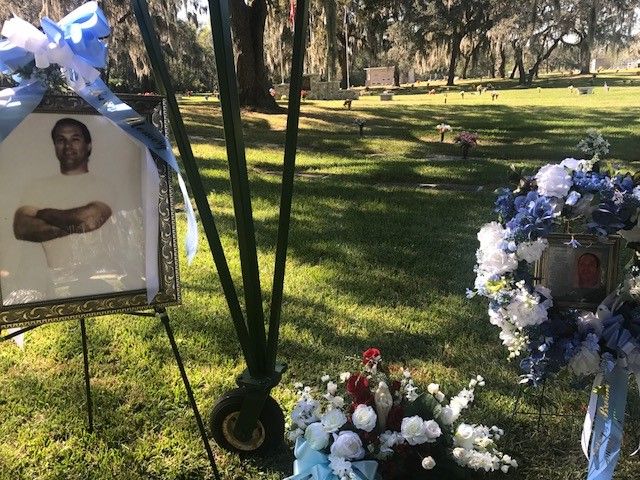Monday, November 13, 2017
Clemency Gone Missing From Florida’s Death Row
Sun Sentinel Editorial Board November 11, 2017
Justice is supposed to be blind, but not as blind as the U.S. Supreme Court when it ruled in 1993 that a Texas death row prisoner — who claimed to be innocent, but had run out of appeals — should look to the governor to save his life.
“Executive clemency,” wrote Chief Justice William Rehnquist, is “the 'fail safe' in our criminal justice system."
But when it comes to the death penalty in Florida, the fail-safe has gone missing.
There hasn’t been a death row commutation in Florida since 1983, the first year of Gov. Bob Graham’s second term.
Since Florida resumed executions in 1979, governors have put 95 people to death and spared only six, all by Graham.
In at least 17 of those cases, advocates say grounds existed for commuting the sentence to life in prison. That’s not “getting away” with anything, by the way. The only alternative to execution is life without parole.
In four of those cases, Florida juries had recommended life sentences, but were overruled by the judges. At least two of those put to death were insane, including one who believed he was being executed because he was Jesus. And two were Vietnam veterans with post-traumatic stress disorder.
It’s hard to understand what’s happening because when it comes to open government, death row clemency is a black hole. Everything about the process is secret unless the governor or Cabinet chooses to hold a public hearing, which hasn’t happened since the Jeb Bush administration.
There’s no way to know whether the governor is receiving erroneous reports from his staff or from the Commission on Offender Review, which reviews clemency applications.
Neither is there a way to tell whether the governor even reads the files for himself.
Like his predecessors, Gov. Rick Scott routinely signs death warrants without saying why he denied clemency, other than that he found no reason. We asked his spokeswoman. She said: “His foremost concerns are consideration for the families of the victims and the finality of judgment.”
Those final words say more than she may have realized. “Finality” is the mantra of appellate courts that have decided they’ve heard enough from a prisoner. Now it’s the governor’s mantra, too?
But what if the criminal justice system got it wrong?
It’s not a hypothetical question. Florida leads the nation in death row exonerations, with 27. That means that in sentencing someone to death, the state has gotten it wrong 27 times.
Given that sobering statistic, you have to wonder how many innocent people may have been executed or remain on death row.
Gov. Scott has presided over 26 executions, more than any governor since they were resumed in 1979. The latest took place Wednesday, when Patrick Hannon was killed by chemical injection for his role in killing two Tampa men in 1991.
The governor’s silence about his use of the ultimate punishment is an insult to the people of Florida. Nothing in government is as grave as the power to choose between life and death. He should be accountable for how he uses it. Does he read the letters sent him by families, attorneys or prisoners? Has he ever questioned the reports and requested more information? Has he ever had doubts?
It’s not “soft on crime” for a governor to commute a death row sentence to life without parole. In many ways, life without hope is a fate worse than death.
Former governors understood this.
From 1925 through 1964, the start of an unofficial nationwide moratorium, Florida governors commuted 55 of the 250 death sentences that came to their desks, a rate of 22 percent. Every governor spared at least one in five. Two commuted nearly half.
The most famous instance was LeRoy Collins’s 1956 decision to spare Walter Lee Irvin, a black man condemned for the alleged rape of a white woman in Lake County. In the aftermath, a posse killed a man who had been with Irvin that day. Irvin, along with two others, was badly beaten. Later, while being transported to jail, he was shot by a sheriff, but survived.
The Irvin commutation was used against Collins in his re-election campaign. He won.
“My conscience told me that this was a bad case, badly handled, badly tried, and now on this bad performance I was asked to take a man’s life. My conscience would not let me do it,” he said.
Collins was vindicated. The “Groveland Four” had been framed. This year, the Florida Legislature formally apologized for the injustice and asked Scott to pardon them posthumously. He has yet to say whether he will.
The Collins example deserves to be followed, not ignored.
Among the proposals filed by members of the Florida Constitution Revision Commission is one that would repeal the death penalty. This deserves serious consideration.
At a minimum, the commission should open the curtains on how governors use or don’t use the power of clemency. Given how often Florida sends the wrong person to death row, we need, as Rehnquist said, a fail-safe backstop.
* Read also: Does Clemency Exist in Florida?
* Read the letter from Mike's familie, asking Governor Scott for an exceptional clemeny hearing.
* Read the Petition for Clemency for Mike, written by Roseanne Eckert, Clemency Counsel
* Excellent article by Martin Dyckman -
*Mike's website: Southern Injustice
Subscribe to:
Post Comments (Atom)














3 comments:
Great article, thanks for posting it! RIP Mike, you are missed.
Will Mr Rick Scott interested in reading this article? That's so interesting to be known....The trouble is that when executing someboy....many things about their background are not taking into account....
I don't think he would bother Joana. Sadly their background and circumstances are not even looked at.
Post a Comment